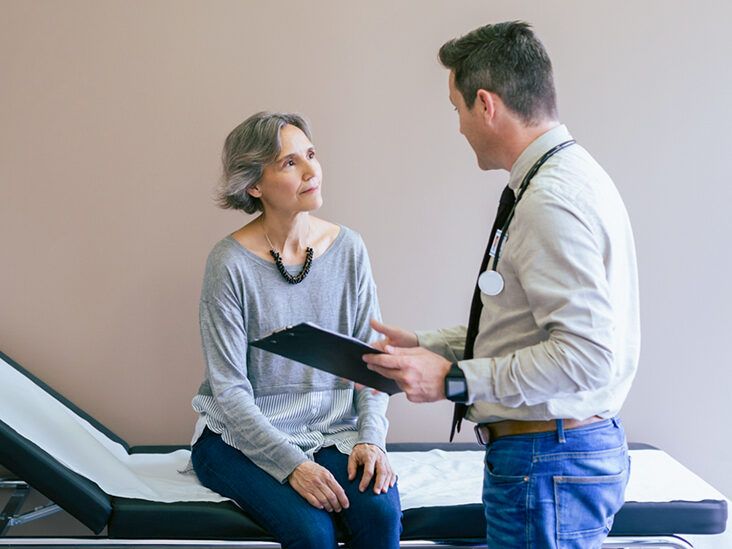Untreated irritable bowel syndrome with constipation (IBS-C) or chronic idiopathic constipation (CIC) can lead to many complications like malnutrition, rectal prolapse, and more.
Both IBS-C and CIC can affect not only a person’s health, but also their quality of life. Ignoring these conditions or refraining from seeking treatments for them can lead to serious complications.
Treatment can help avoid these conditions and relieve symptoms.
Read on to find out how you can start preventing complications today.
For most people, constipation is a temporary occurrence corrected with more fluids, fiber, and movement. But when you have IBS-C or CIC, constipation can become a way of life. Chronic, untreated constipation
- Anal fissures: The pushing from trying to have a bowel movement can cause anal fissures, or small tears in your anus. These may be difficult to heal when you have continual constipation. Symptoms can include itching, pain, and bleeding.
- Fecal impaction: When stool starts to pack tightly in your rectum, you may not be able to push it out. This is known as fecal impaction. Because impaction affects the stool’s ability to move forward, you may have to seek medical attention to have the stool manually removed.
- Hemorrhoids: These swollen and inflamed veins can cause rectal bleeding. They’re usually the result of excessive pushing and straining.
- Malnourishment: When you have IBS, you may start avoiding certain foods that are healthy because they aggravate your symptoms. As a result, you could be missing out on key nutrients. This malnourishment can cause unwanted weight loss and a number of other problems.
- Rectal prolapse: This condition occurs when your rectum exits your anus. This can cause mucus to leak out of your anus. The condition is most common in people with a history of chronic constipation and is particularly common in postmenopausal people.
Having IBS or CIC can have long-term impacts on your mental health and overall sense of well-being.
Up to one-third of people living with IBS also have anxiety or depression.
The anxiety these conditions can cause has potentially far-reaching complications. The connection between mind and body is strong when it comes to IBS.
Living with long-term abdominal pain from IBS can lead to anxiety over symptoms. Depression, or long-lasting feelings of hopelessness, can set in as a result. In addition, depression causes other symptoms, including a lack of motivation, withdrawal from others, and all-over body aches.
People with either condition might also develop a fear of going to public places, especially unfamiliar ones, due to concerns over not being able to find a bathroom or getting to a bathroom fast enough. This can result in withdrawal from family, friends, and co-workers.
Read about the symptoms of anxiety disorders and how to get help.
Learn more about depression and what can help reduce it.
Many misconceptions exist about some of the potential side effects related to IBS.
IBS doesn’t cause inflammation of your colon that leads to permanent changes. So if you have IBS alone, you shouldn’t experience some of the long-term complications associated with inflammatory bowel disease (IBD). These include intestinal bleeding or areas of inflamed colon that require removal through surgery.
Having IBS
People with IBS should still get regular screenings for colon cancer.
Dispelling these misconceptions doesn’t mean that you shouldn’t seek treatment for IBS. The knowledge may help you feel more positively about your outlook for IBS when you have the condition.
Symptoms associated with IBS-C and CIC can be difficult to discuss with a close family member, let alone a doctor. But your quality of life and overall health could benefit in the long term by seeking treatment.
If you experience the bloating, abdominal pain, cramping, constipation, and mucus in the stool that often indicate a condition that is uncontrolled, make an appointment to talk with your primary care physician or gastroenterologist, if you have one.
Making a list of your symptoms and any questions you may have in advance can help eliminate some of the discomfort in talking about your health.
A number of treatments are available for IBS. Seeing your doctor could be the first step in finding out which is right for you. From medications to lifestyle changes, there are many options that can help you avoid the complications associated with IBS.








